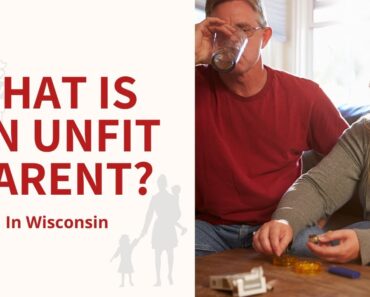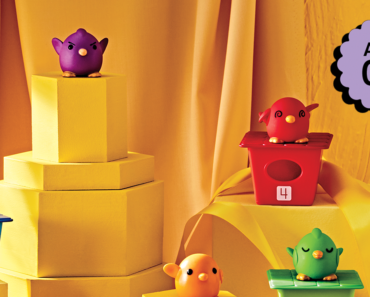No one begins a marriage planning to separate or divorce. Forever is promised, dreams are envisioned, a life is built, and then things change. Whatever your reason for separating, it is an incredibly difficult decision and one of the most stressful life events that a person can go through.
If you’re contemplating, going through, or have already separated or divorced, you’re not alone. Statistics Canada’s most recent stats show that in 2020, nearly 43,000 divorces occurred, meaning that almost 86,000 Canadians experienced this.
Navigating a separation or divorce is complicated.
Do you sell the house? Where will you move? How will you split your assets? Who gets what? And it takes a major toll on your emotions.
Luckily, many of these decisions occur simultaneously and rarely need to be revisited.
Parenting, however, is another story. Co-Parenting takes an ongoing effort, a willingness to adjust your needs and wants, and an ability to keep your children’s best interests at the forefront.
I often tell my clients to remove their “partner hats” and only wear their “parent hats” moving forward. What I mean by this is to let go of your relationship issues, the romantic relationship has ended, but the parenting relationship is here to stay.
What is positive co-parenting?
Many people who come into my office have an image of positive co-parenting, where the parents are great friends who continue to spend time together without anger or resentment. Many of my clients have shrugged off the idea that they could effectively co-parent with their ex-partner because they cannot envision this kind of relationship.
They’re flooded with ideas of heartfelt discussions, family dinners, and ongoing support of one another. While some former couples remain close friends, as you may have been thinking, this is unrealistic (or desirable) for most separated couples. Many divorced parents are surprised to learn that this is not what I have in mind when I discuss positive co-parenting.
One key element that makes a successful co-parenting relationship is the ability for both of you to focus on your children’s wellbeing.
What has the process of separation been like for them? How are they adjusting? What do they need to feel safe and secure? To focus on them this way, you must also tune in to your needs.
Why your emotional state is important
Exploring your own anger, frustration, grief and sadness about this life change is critical, even if your separation happened years ago. These challenging yet often expected feelings can blur your focus on your children.
For example, when you’re still harbouring anger toward your ex-partner regarding finances and your child shares that they spent the day with their other parent doing extravagant things, your knee-jerk reaction might be to say something like “must be nice!” or “wish they would have done those things when we were all together.”
These comments are about you and your anger and not about your child. You may inadvertently be giving your child the message that it’s not okay for them to be excited about their time with their other parent and that saying positive things about their parent upsets you.
Respecting each other as valuable figures in your children’s lives can go a long way in your children’s development.
Encourage this relationship, say positive things to your children about their other parent, and never speak negatively about their time spent at their other home.
The more your children can focus on being kids instead of navigating parents that don’t like each other and feeling responsible not to upset you, the more brain power they have for social and academic growth.
Separating your feelings about your ex-partner from your children’s feelings about them is critical. If you find that you’re struggling with this, which many parents do, counselling can be a good option to work through some of this anger and find strategies to protect your children from this.
A wonderful tool often recommended for separating parents, especially those with younger children, is a parenting plan. A parenting plan is exactly what it sounds like, a plan for how you will parent your children. Many parents create this during their separation and include it in their separation agreement.
The plan can be as detailed as needed and outlines where your children spend their time, how decisions are made, and how information is shared between the parents. Generally, I advise parents that the more conflict they have, the more detail to include.
This parenting plan can be made with the support of a professional, often a family mediator, and allows both parents to be involved in what this plan will include.
As a family mediator who focuses on parenting plans, I explain to parents that the benefit of meditation is that they remain the decision-makers for their children. As parents, you are the experts on your children- not me, lawyers, or a judge. You should be making these most important decisions about your children; to do so, you must be willing to work together.
Over the years, it’s important to update this plan to address the changing needs of your children and ensure that they continue to be well supported. As all parents know, the needs of an 11-year-old are not the same as a three-year-old.
Focus on your own parenting goals
Co-parenting is undoubtedly one of the most challenging relationships, but it can be done. Focusing on your own choices and behaviour is where to spend your time.
What are you doing to be a good co-parent? How are you supporting your children and their needs? Do you need to reach out for support? Various professionals are available to help ease this transition, help to create your parenting plan and provide counselling as needed.
I often ask parents how they would like their children to answer if I ask them in 20 years, “How did your parents handle their divorce, and what was your experience as a child?” Positive and effective co-parenting is possible, and your children will thank you later for all of your efforts.
*If there are safety concerns for your children or yourself, such as family violence or addiction concerns, co-parenting relationships need to be adjusted and supported differently. Please reach out for support as needed.
Stefanie Peachey is a Registered Social Worker and Accredited Family Mediator. She is the founder of Peachey Counselling and Family Support in Burlington, ON.
Get parenting news, expert advice, info on secret sales, discounts and the best-ever products. Sign up for the Today’s Parent newsletter

































